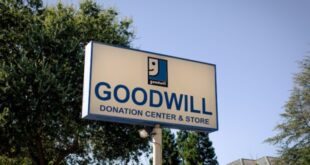The championship golf course is being sold to one of the Inland Empire’s best-known developers. The property’s future is likely a mixed-used residential and retail project, much to the regret of some of its patrons.
Empire Lakes Golf Course will soon be no more.
The 20-year-old facility that sits on approximately 160 acres is being sold to the Lewis Group of Companies in Upland, which wants to build a mixed-use development there that would be geared toward 18 to 34-year-olds, also known as millennials.
At buildout, which is expected to take seven to 10 years, the project would cover about 120 acres. The proposed number of housing units varies from 2,650 to 3,450 units and would consist of single-family homes and multifamily units.
The latter will be apartments, condominiums or a combination of both.
About 220,000 square feet will be set aside for non-residential use, including retail, recreation and a community center, said Randall Lewis, executive vice president of the Lewis Group.
“We know that some people are for this project and some are against it,” Lewis said. “We know there are a lot of people who play Empire Lakes who don’t want to lose their golf course, but the golf course is privately owned. The owner has decided they’re not getting a good return on their investment.”
Rancho Cucamonga has yet to approve the project. Its seven-member planning commission got its first look at the proposal Wednesday, but after a lengthy hearing it did not cast an up or down vote. Instead, it agreed to resume its discussion at a later date.
City staff has recommended that the project be approved, citing a need for housing in the city, especially multifamily units. Ultimately, the project will go before the city council.
Multifamily, which is scarce in Rancho Cucamonga, would appeal to several demographics, including younger people who can’t afford a house and older people who are looking to scale back, said Jeff Bloom, Rancho Cucamonga’s deputy city manager of economic and community development.
“There’s a lot of misinformation about this project,” Bloom said. “It’s not quite as simple as taking out the golf course and building houses, because there are some zoning changes involved. But the city needs more housing.”
If all goes as planned, Empire Lake’s last day in business will be May 31. Construction on the project would start sometime next year.
The privately owned golf course, which is bordered by Milliken Avenue on the east and Cleveland Avenue on the west, is an ideal location for a major housing development. It can be reached by the 10, 15 and Foothill Freeways, and the city’s Metrolink station is located immediately outside the northeast tip of the property.
“It’s in the heart of the market,” said Lewis, whose family has been building houses in Southern California since 1955. “Having the Metrolink station so close will make the property even more valuable in the future, when they increase service.”
The project, which for now is being called Empire Lakes, will not be gated and will have an urban design that should appeal to young people.
“We want something where people will be able to live close to where they work,” Lewis told the planning commission. “We need to attract jobs, and if you talk to any employer they will tell you that housing is an important [factor] when they decide where to locate. They want their employees to have a good place to live.”
Like a lot of cities, Rancho Cucamonga is trying to make it easier for people, especially young people, to own a home, Bloom said.
“This is going to fill a need, and it’s going to create a lifestyle that we believe people are looking for,” Bloom said. “A golf course may be going away, but the city will get more housing in return.”
Eugene Park, the golf course’s general manager, did not return telephone calls seeking comment.
Data regarding the number of rounds played at Empire Lakes is not available, but the play there has dropped in recent years and the course is not as popular as it was in the years immediately after it opened, Bloom said.
Empire Lakes is not alone. The U.S. golf industry is in a funk, especially among young people.
In 2006, about 30 million people in the United States called themselves golfers, but that number fell to about 24 million in 2014 and 2015, according to the National Golf Foundation.
Three years ago, 160 of the 14,600 golf courses in the United States shut down, the eighth consecutive year of net closures, according to The Economist.
The magazine cited several reasons why golf is struggling, including slow play, new courses that are too difficult and expensive to play and a middle class that is reluctant to spend money on recreation.
“For whatever reason, golf is not as profitable as it used to be,” Lewis said. “If it was, Empire Lakes wouldn’t be for sale.”
That’s little consolation to James Acosta, who has worked in the Empire Lakes Pro Shop for one year and is studying to get his PGA credential so he can one day become a head professional.
Empire Lakes, which was designed by Arnold Palmer and has hosted The Nationwide Tour, still gets about 100 rounds on a typical day, Acosta said.
“People are disappointed,” Acosta said “They won’t have as many places to play in this area. There’s Whispering Lakes [Ontario], Sierra Lakes [Fontana] and Upland Hills, and that’s about it. I think we need more golf courses than that.”
The sale to Lewis Group is probably a “done deal,” longtime Rancho Cucamonga resident and Empire Lakes patron Mario Teran said.
“I think you can tell the way they’re talking about it that it’s going to happen, and that’s a shame,” Teran said during a break in the planning commission meeting. “There won’t be a single golf course in Rancho Cucamonga after Empire Lakes is gone. We’re also going to lose one of the best practice facilities in this area. It’s very disappointing.”
 IE Business Daily Business news for the Inland Empire.
IE Business Daily Business news for the Inland Empire.


